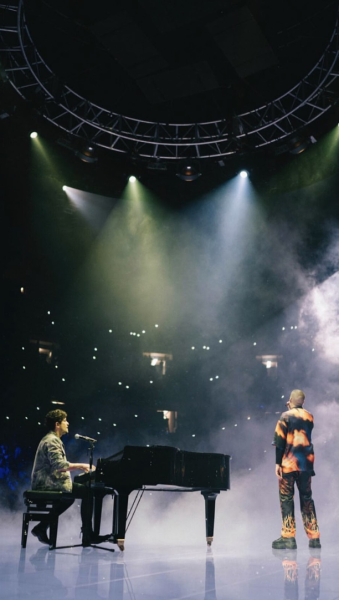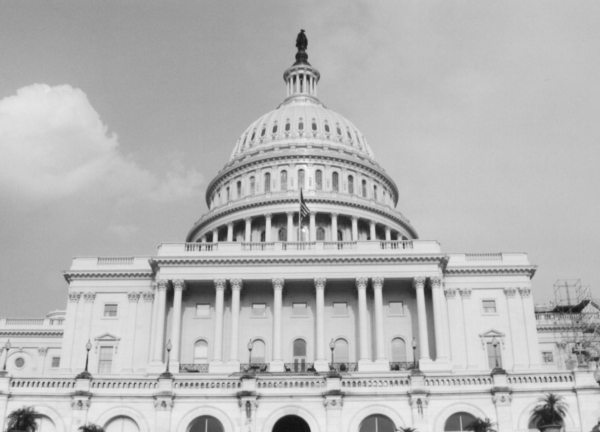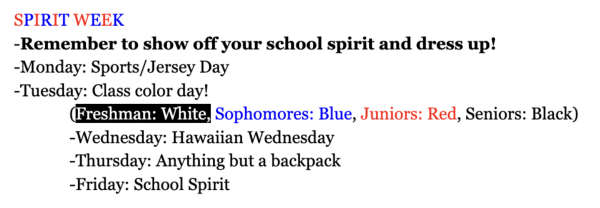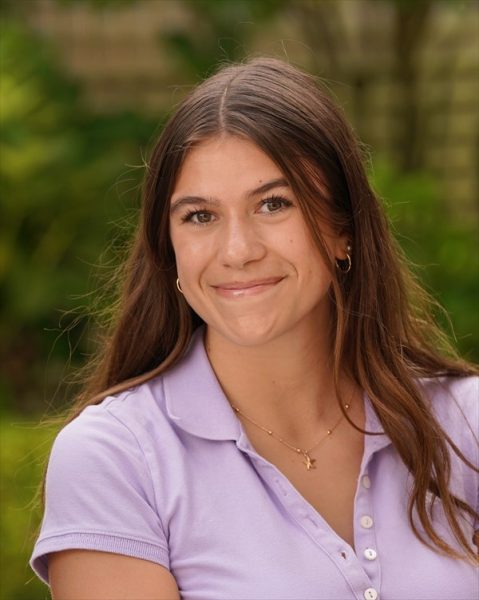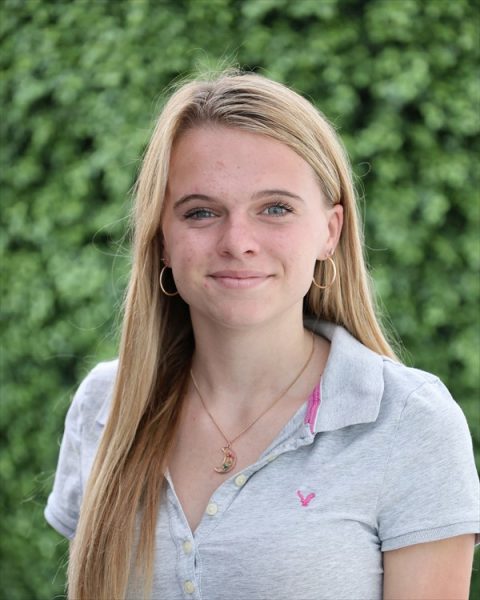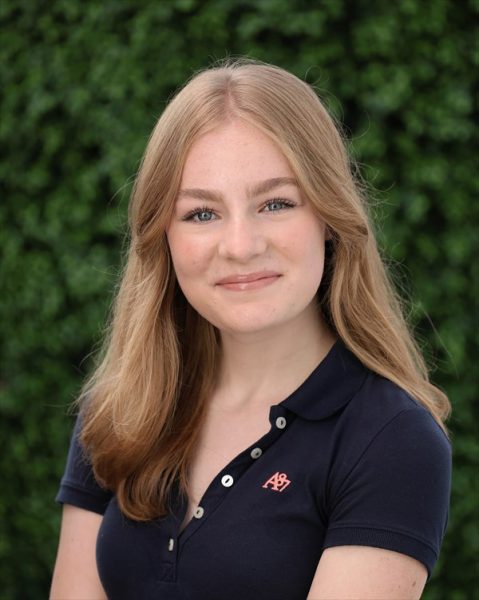Let’s talk about race
POCSU discusses insurrection, Black Lives Matter
Swarms of protesters took to the streets over the summer, reigniting the discussion about race.
February 25, 2021
In light of the insurrection and Black History Month, The Broadview sat down with the members of the People of Color Student Union over Zoom and discussed current events and living as a person of color. The discussion is a fuller version than appeared in the print edition on Feb. 19, 2021.
The Broadview: What went through your mind during the insurrection at the Capitol?
Robin Tsai, junior: When I first looked at the news of the insurrection, I was not only terrified, but definitely very angry. There’s definitely a massive difference in how they treated the domestic terrorists there as opposed to peaceful protesters in the BLM protests this summer. This isn’t just white privilege at play — its definitely white power. Frankly, I remember being on the verge of tears just watching that. It was something we expected would happen, given how much the flames are fed by President Trump over the past few years. It’s still terrifying even if you expected it.
AP Pang, junior: I visited the Capitol and people treated it with the utmost respect. To see on the news that people were going in there with Confederate flags stomping all over everything, jumping on things, and destroying something that I visited as a privilege shows the extent that these people are given a step-up in our society. A group of people were let in there to riot without any major like apprehensions to them — no rubber bullets or tear gas or anything. It’s just like, “Why are these people not being treated the same way that other people have been treated when they’re peacefully protesting?”
Erandi Arciga Duenas, senior: I think it’s a commentary on America, how prevalent white supremacy is, and how much it still exists today. Even though lots of people think we put a stop to all of this years ago. It’s still happening today and it’s very scary for minorities and people of color and anyone that is still oppressed in our nation today.
Anthony Sharp, senior: They were told by the president to start shit instead of a peaceful protest, and yet they were not ready for what was happening. It was just like instant confusion why no one would think it was an important thing to call somebody, knowing that they were planning to come and not have a peaceful protest. People were armed and people had things ready to hit windows.
TB: You kind of just touched on this a little bit, Robin, but I’m talking about the police response and your parents or anyone in your family talk about police violence and on the fact that people of color are disproportionately affected by the police.
Anthony Sharp: Being a young African American man and mixed young man, I have always been taught to be cautious wherever I am because of the constant violence that happens to young Black men from police. I was taught at a very young age from my father that it is a dangerous thing to be a Black man in America. It is something that you have no control over and you have to learn to deal with when you’re in public.
Beimnet Lesanework, senior: My parents always wanted me to not talk back to any form of authority or express my opinion, just to be cautious of what you say and how you say it. I was taught that I don’t have the same privileges as someone with lighter skin or someone that’s white and I can’t really express my opinions and feelings the way that I want to. They’ve definitely warned me of that and the consequences that will follow if I do. I’m always very wary of how I say things and who I say them to because of that.
Anthony Sharp: I’m thinking about that question and how I need to be cautious around people of authority and especially police officers and coming to a school where kids have parties, almost every weekend, out in the park in Pac Heights. This is not a thing that Black kids really do. They can’t go out at midnight and have the police officers, if anything, walk through the park and ask people to leave. That is not the same thing that happens in Black neighborhoods. I live in the Bayview. There are police cars patrolling all hours of the night and there’s no privilege of being able to be out at night and not being scared of a police officer handcuffing you for having alcohol. It’s kind of crazy to think about the things I’ve seen and the things that my classmates have gotten away with because they’re white in these neighborhoods.
It’s just frustrating to know that we have to learn from being in middle school to elementary school that we are not allowed to act like other people because of the danger we’re in. It’s frustrating to come to a private school and see the things that they’re allowed to get away with and know that I’m never going to be able to get away with that stuff until I’m an old man. We’re stuck. There’s nothing we can do because of that idea that you know Black people are less worthy than white people.
TB: Social media has become a forum for social activism. What’s your take on it?
Robin Tsai: Social media activism only goes so far. We saw a massive clutter of people who were just posting black squares on their Instagram and that was the extent of their activism. I think one thing that a lot of white allies should ask themselves is: “What am I actually doing to benefit BIPOC?” There’s a lot of things that they could do as an ally to benefit BIPOC: donate to bail funds, donate to rental assistance, or participate in grassroots communities that help fight against disenfranchisement. Social media activism can raise awareness but you have to do something that helps change something.
Roberto Parris, Wellness Counselor and Academic Coach: What does the Black Lives Matter movement do for people of color?
D’angelo Flores, senior: I’ve been doing research on the inequalities within education for people of color. Something that stuck out to me was the fact that students of color — starting from kindergarten all the way to eighth grade — have very understaffed and under resourced schooling. I think one way that BLM could help with that is by hopefully offering more resources to those under-resourced schools. I did volunteering at Redding, and I continued up to until this year, but one main thing that I did there was that I translated for these two students who only spoke Spanish. I just don’t know how they did it before there because they only spoke Spanish and the teacher didn’t speak a lick of Spanish so that’s obviously something those students need to progress and just not having that is very detrimental so just offering those resources to the people who need them is a very important thing BLM could be.
Erandi Arciga Duenas: With the rise of the Black Lives Matter movement, we saw several voices of young leaders that were people of color. Seeing that representation, their work and bringing that into light inspires people like us. It’s empowering to see someone that may look like you stand up and comment on large topics such as white privilege in America. In addition, I think by seeing the rise of the Black Lives Matter movement, I feel like personally lots of teachers after that rise started trying to incorporate more like Black authors into the curriculum, and I feel like it kind of changes the way history teachers approach their way of teaching history.
TB: Are the Executive Orders on racial equity signed by President Joe Biden a productive means of creating equity within the nation?
Anthony Sharp: He signed one to stop the pipeline that was going through South Dakota, which made me really happy. It was great to see because people have been fighting for this since I was in seventh or eighth grade, so it was amazing to see someone finally act upon it.
AP Pang: This is not related to POCSU, but I still think it’s a big thing. I like how Biden has been pushing a bigger agenda for environmentalism, being nicer to our planet and rejoining the Paris Climate accord. I think that’s been missing, at least in the past four years it’s been missing, and the older we get, the worse the planet gets.
Robin Tsai: So just to respond to AP I actually don’t think that’s necessarily not related to POCSU because climate change does disproportionately affect people of color. I’m happy that we’re finally seeing some positive change in the government when it comes to BIPOC and other marginalized groups, such as the LGBTQ+ community. There’s definitely a lot more that could be done. Being a 16 year old in San Francisco, a lot of what I can do is just hope that we’ll actually see things come to fruition.
TB: What has your minority experience in school been like?
Erandi Arciga Duenas: I’ve had an encounter with one teacher in particular where he kept saying my name was Sonia just because I’m Latina, and he just kept going at it for weeks and weeks after I had been in his class for three months. Everyone’s name represents an aspect of their identity and when teachers or administrators or your own classmates fail to recognize that it’s like, “Oh, does my existence not matter here like at all?”
Beimnet Lesanework: I can’t stress that enough like to this day, I’m a senior now, and teachers still get my name wrong and it might seem like a little thing like, “Oh it’s just a name,” but it’s my name, that’s who I am. You can totally see I’m not the other person that you’re calling me. I don’t understand why it’s that hard to just say the correct name. It seems like a little thing to complain about or be frustrated about but every time I’m late to class, the name has to be written as someone else’s name or I’m called someone else’s last name. I just want teachers to know students’ names. That’s all.
As much as I love to educate people and tell them right and wrong, I am so tired of being responsible for telling people that it’s wrong — like I am exhausted. I want them to take responsibility. Don’t wait for it to happen once a year and then address it and then create a whole new chapter and then don’t address it until it happens again. This has happened so many times. I think it just needs to be a thing that needs to get addressed no matter if it happened or not. It just needs to be known that this is wrong and people need to take responsibility and educate their students before it happens because I’m tired of having to be the one that stands up to that.





